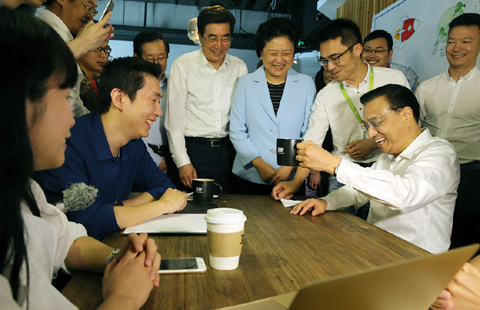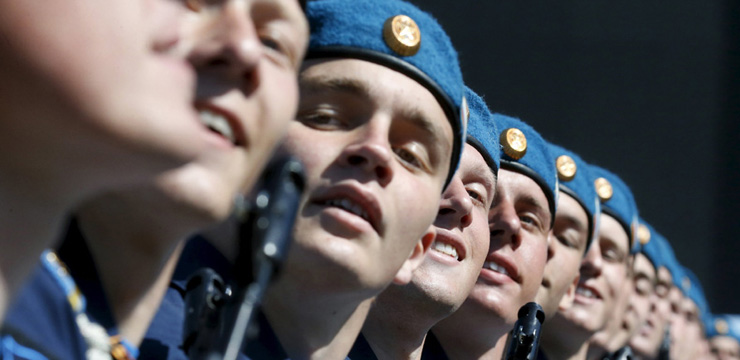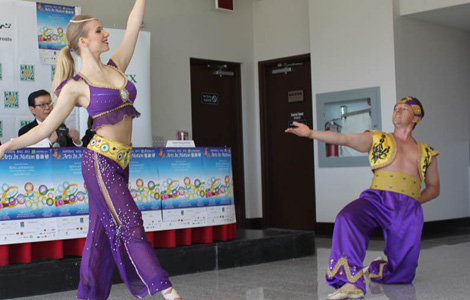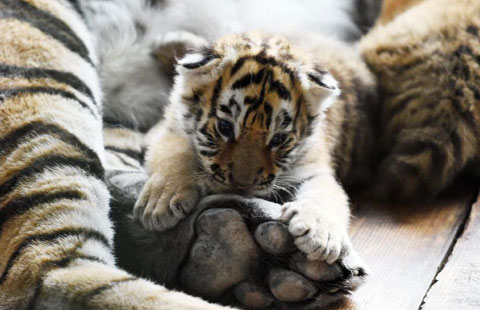Russians aid China as foreign experts
Updated: 2015-05-08 22:06
By Ren Qi(Chinadaily.com.cn)
|
||||||||
|
Russian ophthalmologist Nikola Vasilyevich Dusan is examining his patient in Daqing Ophthalmic Hostpital May 6, 2015. Dusan has been to China for more than a decade and cured over 100 thousand Chinese patients. In 2009 he was awarded the Friendship Award by Chinese government. [Ren Qi/China Daily] |
More than 30,000 foreign experts from Russia and the former Soviet Union have participated in China's economic development since the 1950s in dozens of field, including agriculture, energy, transportation, education and technology.
Nikola Vasilyevich Dusan, an ophthalmologist, came to China in 1998 and became the chief expert at Daqing Ophthalmic Hospital. In his 20 years of working in the city, he helped restore vision for more than 100,000 patients.
"I really enjoyed my stay in China," said Dusan, who was born in 1947 and was once the director of the ophthalmic department of People's Friendship University of Russia in Moscow. "The Chinese hospital and Chinese colleagues have treated me well since I came to China."
In 2009, Dusan was awarded the Friendship Award by the Chinese government, which is the highest honor for a foreign expert in China. He said he highly valued the cooperation in exchanging foreign experts between the two countries.
"When I came to China for the first time, I needed to bring all my equipment and materials that were essential to operations," he said. "But now in China, modern hospitals with advanced equipment are established everywhere."
Expert exchange policies benefit both countries and help experts from both sides to improve their skills, Dusan said.
According to an estimate by the State Administration of Foreign Experts Affairs, there have been about 6,000 visits by Russian experts to China every year since 2000.
Besides cooperation in medical science, the two countries maintain close relations in the field of applied science.
Igor Bychikov, for example, is a leading scientist for system dynamics in Russia. He has been the director of The Institute for System Dynamics and Control Theory of the Siberian Branch of the Russian Academy of Sciences since April 2007.
Since 2010, Bychikov has been to China three times to work with scientists at The Institute of Automation at the Heilongjiang Academy of Sciences on high-tech projects.
"Nowadays, more and more Russian scientists prefer coming to China for scientific cooperation," Bychikov said. "The major reason is because China’s economy rose rapidly in the past few years and the high-tech industry has got full support from the government."

 Beijing female pilots ready for takeoff
Beijing female pilots ready for takeoff
 Premier meets with group of innovators over coffee
Premier meets with group of innovators over coffee
 A glimpse of last rehearsal for V-Day parade
A glimpse of last rehearsal for V-Day parade
 Unusual but true: Breast milk ice cream just in time for royal baby
Unusual but true: Breast milk ice cream just in time for royal baby
 Candlelight vigil held for victims in Nepal earthquake
Candlelight vigil held for victims in Nepal earthquake
 Across Canada (May 8)
Across Canada (May 8)
 Ten photos you don't wanna miss - May 7
Ten photos you don't wanna miss - May 7
 Siberian tiger cubs in NE China
Siberian tiger cubs in NE China
Most Viewed
Editor's Picks

|

|

|

|

|

|
Today's Top News
Economic projects assist 'Belt and Road Initiative'
Chinese team helps heal Nepal
Joint anti-graft push needed, US delegates told
US NSA's phone spying program ruled illegal by appeals cour
US to launch federal probe into Baltimore police practices
AIIB 'backfired' on
US: Expert
China pledges continued help as Nepal rebuilds
Annual China-US air passenger trips top 6m
US Weekly

|

|






